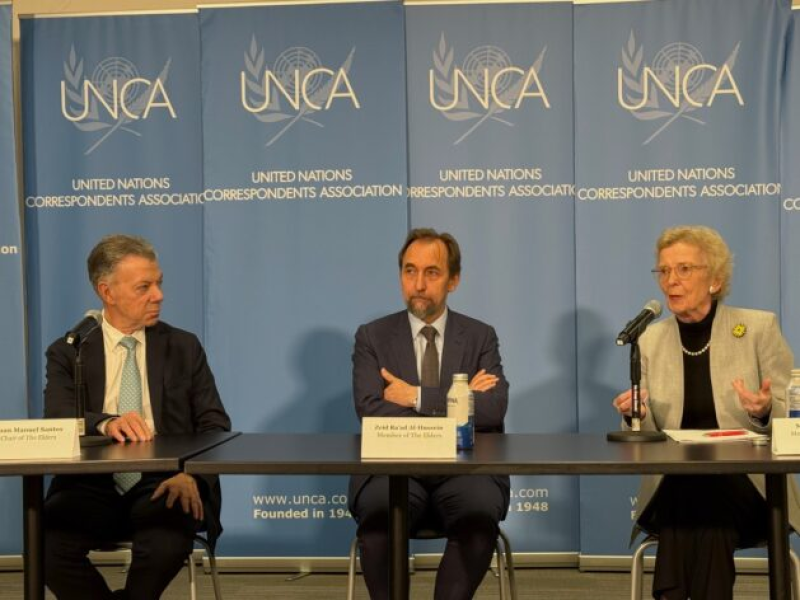- From DUCSU to JUCSU, Shibir Extends Its Winning Streak |
- Dhaka's air quality in 'moderate' range on Saturday morning |
- Deadly Floods Displace Over 100,000 in South Sudan |
- Nepal has first woman Prime Minister as March elections set |
- 50 Killed as Israel Intensifies Strikes on Gaza City |
Global Push for Two-State Solution Gains Momentum at UN

Dignitaries from across the international community have convened in New York to promote the two-state solution—envisioning Israel and Palestine as sovereign, coexisting nations—as the only viable path to sustainable peace in the Middle East. Leaders from 145 countries and independent organisations are speaking at the United Nations to demonstrate near-universal support and discuss practical steps to achieve this goal.
The UN high-level conference, co-chaired by France and Saudi Arabia, is taking place at UN Headquarters from 28–30 July. It includes thematic discussions on regional security, Gaza reconstruction, and statements from member states and regional stakeholders.
According to The Elders, a group of global leaders founded by Nelson Mandela in 2007, there is a strong spirit of cooperation among participants to advance the two-state solution. Juan Manuel Santos, former President of Colombia and current chair of The Elders, called it “an exceptional moment for the UN, the Middle East, and the world.”
Santos acknowledged that their stance has drawn criticism, particularly from the current Israeli government, but emphasised perseverance. “Every conflict eventually finds resolution,” he said, expressing hope that the humanitarian tragedy in Gaza might create momentum for meaningful negotiations.
Mary Robinson, former President of Ireland and former chair of The Elders, said this is a “moment to build on,” potentially setting the stage for serious commitment when the UN General Assembly meets in September.
More than 59,000 deaths have been reported in Gaza since October 2023. Recent UN and humanitarian reports have warned of mass starvation and acute malnutrition, with at least 74 people dead from hunger-related causes. One in five children under five is acutely malnourished, according to the WHO.
Zeid Ra’ad Al-Hussein, former UN High Commissioner for Human Rights, cited local initiatives like “Two States, One Homeland” led by Israeli and Palestinian activists. These propose an end to occupation, negotiated borders, and freedom of movement for all.
“The strength of the proposal is that it is being driven by Israelis and Palestinians themselves—activists and lawyers,” said Al-Hussein, urging that the UN acknowledge such creative thinking.
While many nations participate, Israel and the United States have boycotted the conference, citing the stalled ceasefire and the hostage crisis in Gaza.
Mary Robinson highlighted the global urgency. “There is a real sense of urgency—and that cannot be ignored, not even by a powerful United States supporting the current Israeli government,” she said, warning that the U.S. risks complicity in what she called a “genocide.”
She urged countries supplying arms—like the UK and France—to halt transfers, and called for sanctions against Israeli leaders responsible for illegal settlements. Trade agreements should also be reviewed, she suggested.
France has called for the demilitarisation of Hamas, and Santos remarked that the group's relevance might fade if an agreement is reached. “Hamas is more a cause than a group. For every militant killed, two are born,” he said, describing Israel’s vow to destroy Hamas as a strategic mistake.
He warned that the prolonged war will damage Israel’s image both domestically and globally—including among the Jewish diaspora and within the United States.
Support for Palestinian statehood is also growing. President Emmanuel Macron announced France will officially recognise Palestine in September—making it the first G7 nation to do so. Robinson noted this could create momentum if other EU countries follow suit.
The Elders remain hopeful that the consensus displayed during the conference will translate into action. While many obstacles remain, the humanitarian crisis in Gaza lends a sense of urgency to move forward with negotiations.

